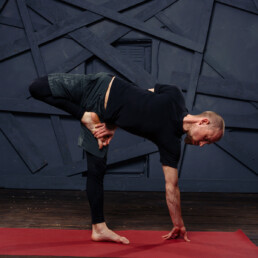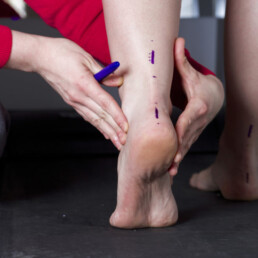
When the World Wide Web was popularised in the early 90s, there were many who thought the invention of the internet, as we recognise it today, would help to level the intellectual playing field and bring a greater level of equality amongst the different educational classes within society.
Fast forward four decades, and the reality is quite different. Especially in the domain of diet and nutrition. We are now suffering from an abundance of too much information, and our confusion lies within trying to navigate between what is true and what is not. Couple this confusion with a workforce which is pushed into ever increasing working hours, we are left with little time to be able to engage within essential household tasks such as cooking, and instead, we reach for pre-prepared and processed foods which provide us a simple, time saving alternative for sustenance. Unfortunately, the cost of this has resulted in a western society overwhelmed with obesity, heart disease, diabetes and cancer. In the UK alone, one in five of us are now considered obese and nearly that same ratio of us will at some point become a victim of cancer as well!

If you ask anyone on the street what foods you think we should eat to keep us healthy, most people will answer along similar lines of eating fruit, vegetables, lean meat and some sort of whole grains. Unfortunately, what really muddies the waters, is that the manner and the way in which the food that we eat is prepared matters just as much as what you eat. For example, so many of us are fooled into thinking that pre-prepared smoothies from the supermarket are a quick fix for getting lots of healthy nutrients into our bodies, but little do we realise that those same smoothies also inject a considerably large amount of sugar into us; and because all of the fibre of the fruit within the smoothie drink has been broken down via the blending process, there is nothing to slow down the absorption of the sugar into our systems. Consume the same smoothie on a regular basis (even as little as three times per week) and the negative impact upon your body can be significant in terms of chronic disease risk in the future.

We are also bombarded by the media and magazines with continually conflicting information about how to eat, what to eat and when to eat it. The contradictions are insane! The constant influx of different information seems to have us running around like headless chickens chasing the latest fad diet to help keep our waistlines down. The confusion is further re-enforced because different friends of ours may swear to the health benefits of completely conflicting dietary habits and we end up at at loss of where to begin.
Having spent the last twenty years studying, investigating and learning about nutrition, I myself have been subject to the same perils, pitfalls, debates and discussions about what we should be eating. I remember being shocked by the approach and the popularity of the Atkins diet back during the turn of the century. The concept of a low carbohydrate diet was something that was so diametrically opposed to the nutritional education that had been taught to me as a lifestyle, fitness and movement professional.
Twenty years on, a multitude of educational courses in nutrition and several hundred books later, the main lesson that I have learnt is that there is no single diet which is perfect for absolutely everyone! As we all emotionally identify ourselves as individuals, we should also show each other respect to the fact that variances do exist between what our bodies can tolerate, in terms of diet. I guess one of the main lessons that I am wanting to spread to you all, is a return to trusting yourselves again and finding out what things in relation to nutrition work for you! It is important to realise that the bodily signs and signals that we should be learning to reconnect with, should be more than simply a reducing waistline. It should also be things like, how you feel immediately after eating a meal? Do you have large dips in energy throughout the day? What does your skin feel like and does it over react to scratches?

Now whilst I am recommending a return to a journey of dietary self exploration and discovery, don’t think I am going to set you on your way without a map to at least point you in the right direction. During my years into nutritional research, there a few commonalities of healthy eating which I have found amongst all good dietary advise that I have been priviledged to learn over the years:
- Don’t eat processed foods. Many pre-prepared and processed foods are heavily laden with sugar, processed salt, artificial sweeteners and chemical additives. Whilst we know the long term effects of consuming too much refined sugar, there is still a large amount of doubt and uncertainty as to the effect of what artificial chemicals and sweeteners really have on our bodies. Also, with many processed foods, we still don’t really know what they actually put into them. In one study of the bread from the fast food restaurant, Subway, they found trace amounts of the same chemicals that you would find in a cigarette!
- Eat whole, fresh foods. Evolutionary biologists have generally accepted that the ability of humans to be able to positively adapt to be able to eat certain types of foods can take anything from 50,000 to 100,000 years. Many of the common food types found in processed foods, such as wheat, were only really introduced into our diet around 10,000-13,000 years ago. This means that there are still many of us who may not be able to properly tolerate the regular consumption of grains and cereals. This could also be said of a whole host of other processed foods types! To avoid the problem of knowing what to eat, it is generally advised to base your diet upon a large ratio of foods that you can recognise in their natural form.
- Not all calories are equal! In the drive for the health industry to provide a simple, easily taught process on how much food we should be eating, the oversimplification of food consumption down to the equation of calories in versus calories out has caused alarming consequences for our health. Can you really tell me that having a hundred calories from eating a pack of Oreos has the same effect on your body as eating one hundred calories of spinach? Think about it. Since the 1980s, from when the practice of calorie counting had been popularised, are we really healthier as a society? With numbers of people in society suffering with obesity, diabetes and heart disease rising year upon year, I think the practice of simply calorie counting within our diets needs to be readdressed!
At Evolution Rehab, with any sort of change, we always advise for you to start simply and apply our recommedations on a step by step basis. Try these basic principles first and, if you are looking for any additional information on books to read to help you on your nutritional journey, please feel free to drop us an email (evorehab@gmail.com) and one of our team will be more than happy to send you our favourite reading lists on nutrition. Alternatively, if you want to go one step further and schedule a nutritional consultation, drop us an email and we will be happy to book something in for you.
Raymond is the principle of our clinic and alongside many other members of our team, he is more than capable of providing you a nutritional consultation if you feel that you may need a little more guidance and advice.
![]()
![]()
![]()



